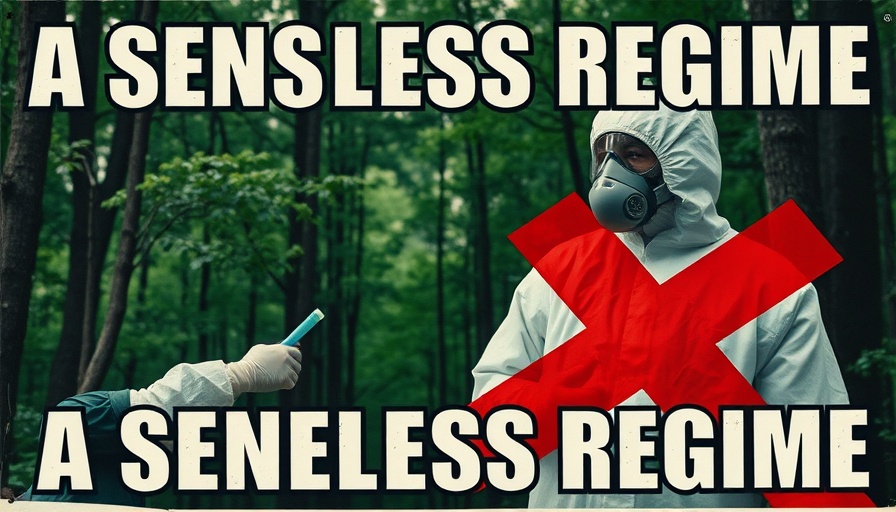
The EPA's Call for Change
In a bold move, over 170 employees of the United States Environmental Protection Agency (EPA) have publicly challenged the Trump administration's approach to environmental policies through a published Declaration of Dissent. The urgency of their message highlights growing concerns that the agency’s core mission of safeguarding human health and the environment is being undermined by a series of deregulations and misinformation campaigns.
Why This Declaration Matters
The declaration underscores the critical role science plays in environmental policy-making. Since its inception in 1970, the EPA has relied on scientific expertise to guide its policies, supporting various initiatives aimed at protecting the ecosystem and public health. The employees’ dissent reflects a broader societal concern: when scientific evidence is sidelined for political agendas, both the environment and public welfare suffer.
A Historical Perspective on Environmental Advocacy
This isn't the first time EPA employees have voiced concerns against administration policies. Throughout history, environmental advocates have faced similar challenges. For instance, during the Reagan administration, many scientists and environmental policymakers argued against significant cuts to ecological research funding. The similarities between past and present highlight an ongoing struggle for maintaining scientific integrity within government agencies.
Emotional Appeal: Voices of Concern
Many employees shared personal stories during the announcement, illustrating how regulatory changes have not just theoretical implications but real-life consequences. For example, one employee recounted the devastating impact of increased air pollution on their community’s health, while another described how the loss of funding for critical ecological research has hampered efforts to address climate change. These narratives emphasize the human element of environmental science, reminding us that the stakes are not purely political—they are personal.
Looking Ahead: The Importance of Scientific Integrity
As we move forward, the EPA's declaration serves as a pivotal reminder of the necessity for scientists and policymakers to advocate for environmental accountability. The coming years will reveal whether such dissent manifests into tangible policy changes or if it merely fades into the background noise of political discourse.
What This Means for Communities
For communities impacted by environmental policies, this is a call to remain vigilant. Engaging with local representatives about scientific policies can make a difference. Collectively, citizens can foster stronger connections with advocacy groups dedicated to preserving environmental health. It’s vital to remember: every voice matters in the ongoing dialogue surrounding our planet’s future.
Get Involved
If you believe in the importance of scientific integrity in environmental policies, consider joining local advocacy groups, attending town hall meetings, or simply sharing information on social media. The more we discuss and promote these issues, the greater the chances for systemic change.
 Add Row
Add Row  Add
Add 



Write A Comment